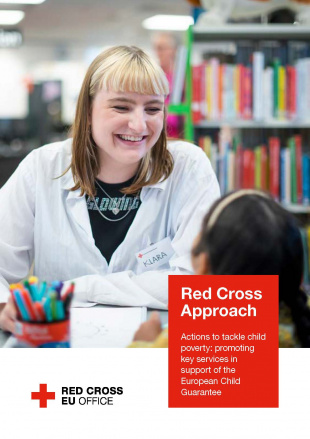Actions to tackle child poverty: promoting key services in support of the European Child Guarantee
In 2022, Eurostat estimated that 24.7% of children (under the age of 18) in the EU were at risk of poverty and social exclusion, compared with 24.4% in 2021. This represents a 0.3% increase over the year. The COVID-19 pandemic is undoubtedly one of the reasons for this rise, and the situation is likely to have only worsened because of the impacts of the international armed conflict in Ukraine and the ongoing cost-of-living crisis.
In this context, the EU has undertaken several important policy initiatives to support Member States in addressing the issue of child poverty at the national, regional and local levels. At EU level, there are two key initiatives. Firstly, the European Pillar of Social Rights and its Action Plan aim to lift at least 15 million people out of poverty by 2030, of which at least 5 million should be children. Secondly, the European Child Guarantee which was adopted in 2021.
This publication highlights the Red Cross’ commitment to supporting the implementation of the European Child Guarantee at national level – ensuring access to key services to fight child poverty.
The Red Cross works to ensure that the needs of the people being supported are met through a holistic, person-centred approach.
OUR APPROACH:
- Life course approach: Each stage of an individual’s life – from infancy to old age – influences the next stage. The social, economic and physical settings where a person lives, works and plays across their life course has a huge impact on their health and the health of those around them. National Red Cross Societies provide a wide range of services and programmes across the life course – ranging from promoting healthy lifestyles and offering services for adolescents and young people, to providing care and specialised support for infants, pregnant women and older people, including home visits and home care.
- Community-based approach: It recognises and values all community members as equal partners, whose diverse needs, priorities and preferences guide everything they do. This is achieved by integrating meaningful community participation, open and honest communication, and mechanisms to listen to and act on feedback within programmes and operations. Evidence and experience show that when communities play an active role in designing and managing programmes and operations, the outcomes are more effective, sustainable and of a higher quality.


